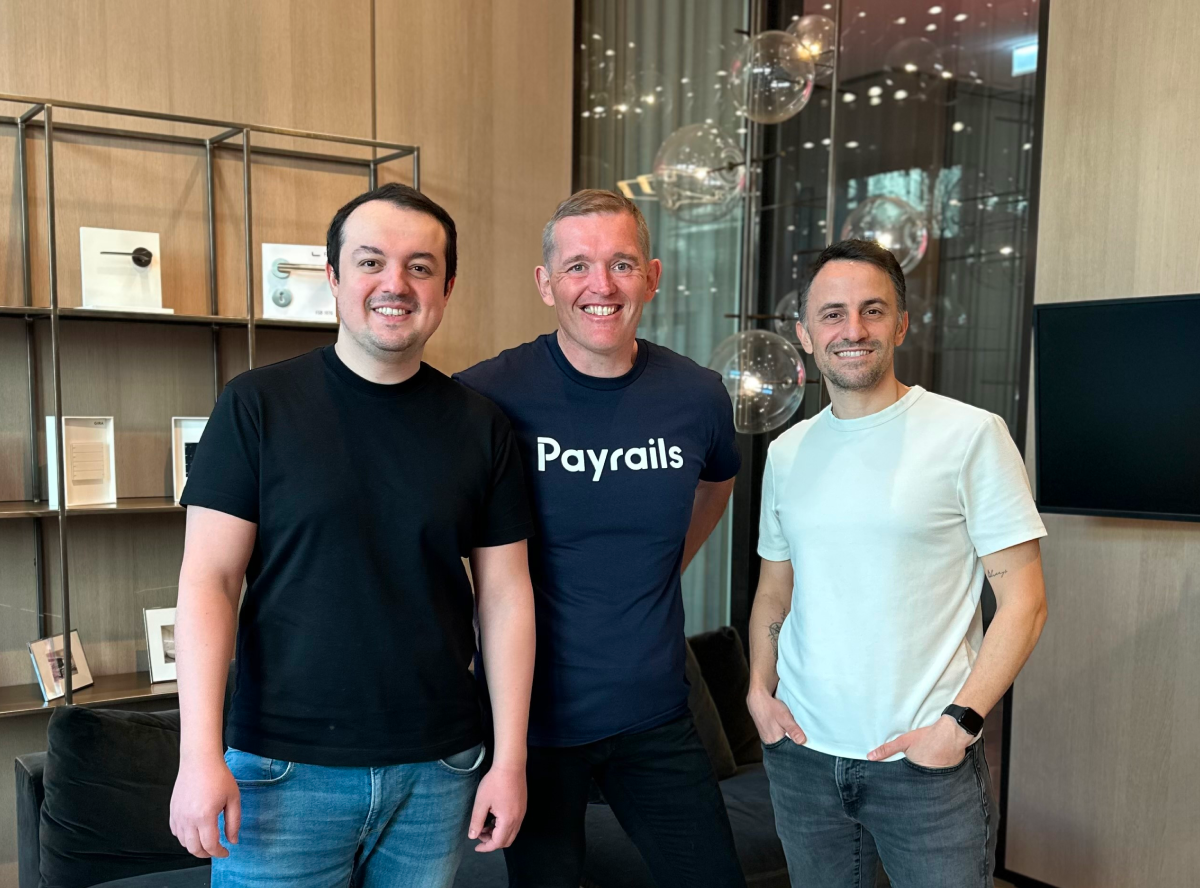Every business deserves a payment platform that unlocks peak performance.
At Payrails, we are building the infrastructure to make that possible: modular, PSP agnostic and designed to give enterprises full flexibility to optimize, scale, and win.
Today, we are welcoming Edward Moore as our Chief Revenue Officer to help further advance our mission.
Ed brings decades of experience at the intersection of payments, software and data, which uniquely positions him to help enterprises navigate payment complexities and unlock new growth opportunities. He is coming from Stripe where he led commercialization and go-to-market strategy for Stripe’s core offerings, including Link, Terminal, Stripe Connect and Optimized Checkout Suite (OCS). As Board Director for Stripe Payments Europe, Ed drove triple-digit growth in enterprise revenue, expanded market presence, and built strategic partnerships that accelerated product adoption across industries.
Prior to that, he spent 15 years at Microsoft, driving large-scale technology implementations and leading the multi-billion-dollar enterprise solutions business.
In this conversation, Ed shares insights on why he joined, what’s next for enterprise payments, and how he sees Payrails shaping the future.
A career leading payments innovation
You’ve had an incredible career at Stripe and Microsoft. At Stripe, you helped leading companies elevate their payment performance. What’s holding merchants back from a seamless global payments strategy?
Ed: Global enterprises today deal with highly fragmented payments infrastructure, often resorting to costly, in-house solutions, what I call 'Frankenstein' systems.
PSPs have built strong ecosystems, but they’re tied to their own networks. That limits enterprises looking for broader coverage across payment methods, acquirers, and markets.
What excites you about Payrails’ approach? What drew you here?
Ed: Payrails is solving a problem that no one else is truly incentivized to fix. Unlike traditional PSPs that create closed ecosystems, Payrails is designed to open up the market, giving merchants full flexibility to optimize payments across any acquirer, any method, anywhere in the world.
That’s a game-changer for SaaS platforms, marketplaces, and global retailers. Instead of building and maintaining complex in-house infrastructure, they get a scalable, efficient foundation for payments.
Ed’s vision for growth
As CRO, what are your top priorities?
Ed: Winning customers and delivering real value. Payrails has the right product at the right time. As we grow, we’ll continue to evolve our platform to meet the needs of enterprises looking for greater flexibility and control over their payment operations.
Payrails is growing fast. How will you balance expansion with maintaining a best-in-class customer experience?
Ed: Growth isn’t just about adding customers, it’s about ensuring our platform continues solving real merchant pain points at scale. The key is listening to customers, refining our modular approach, and staying ahead of industry shifts.
Industry trends & future outlook
Enterprise payments are evolving quickly. What major shifts are you seeing and where does Payrails fit in?
Ed: Businesses want flexibility. Instead of being locked into a single processor, they’re adopting multi-acquirer strategies to optimize payments across regions, methods, and costs. This gives them greater resilience, stronger negotiating power, and reduced dependency on any one PSP.
At the same time, the commoditization of PSPs and acquirers is accelerating. Enterprises want to optimize payments on their own terms, not their provider’s. Payrails is built for this shift, offering agnostic, modular infrastructure that puts control back in the hands of merchants.
AI is also transforming the payments landscape, from routing and fraud detection to checkout optimization. It enables smarter, real-time decisions, like retrying failed transactions or dynamically adjusting flows to improve conversion rates.
On building a winning culture
Stripe and Microsoft are two giants, but with very different cultures and approaches. What lessons did you take from each?
Ed: Microsoft taught me the value of structure and operational excellence at scale. Stripe reinforced the importance of speed, adaptability, and a customer-first mindset.
At Payrails, we need to combine both—moving fast, while ensuring we have the right foundation to support long-term growth.
What defines a strong company culture, especially in a fast-growing organization?
Ed: Culture is everything. Transparency, fairness, and connection matter.
The key is ensuring that as we grow, we bring in exceptional people who elevate those around them. Culture isn’t static, it’s something you have to build with intention at every stage of growth.
What does leadership look like to you in practice?
Ed: By being in the trenches. Great teams don’t just execute, they grow together.
Looking ahead
With Ed on board, Payrails is doubling down on growth, scaling faster, delivering more value to enterprises, and shaping the future of enterprise payments.
Ed: Payrails has the right product, vision, and team to shape enterprise payments. I can’t wait to see what we achieve together.
Payments are at the core of every growing business. We designed Payrails to empower teams with full flexibility for seamless scalability – modular, PSP-agnostic, and effortlessly adaptable. If you are ready to reimagine your payment infrastructure, let’s talk.









.png)